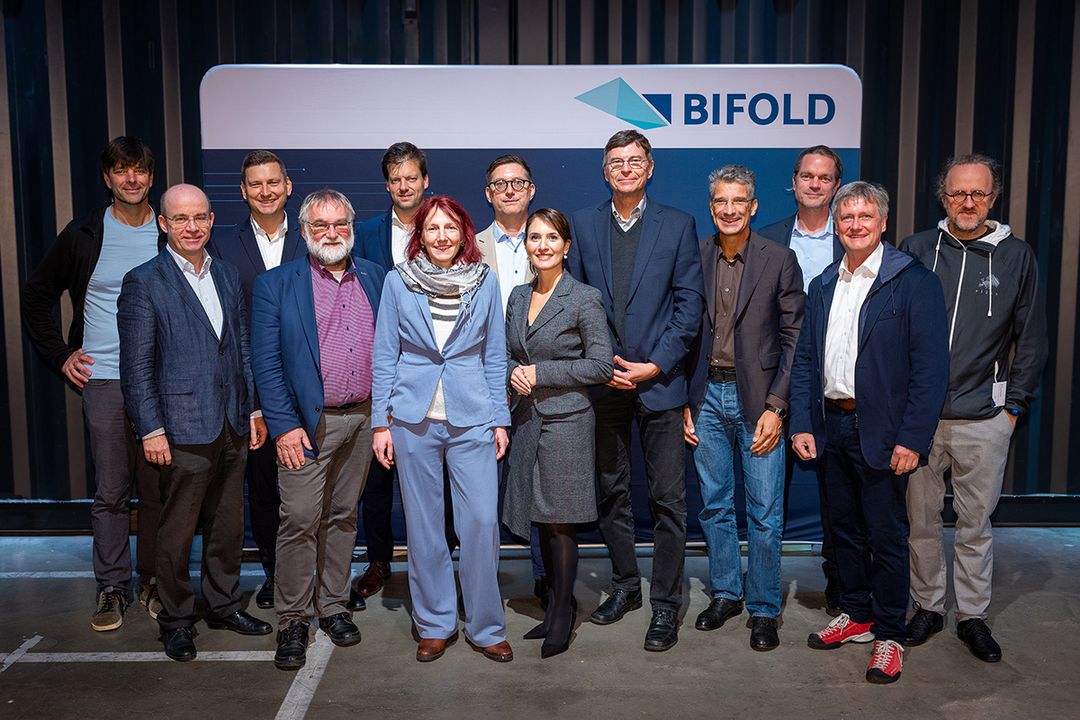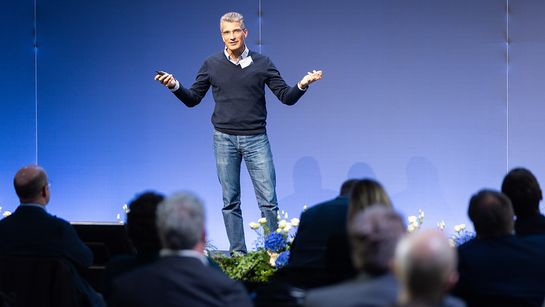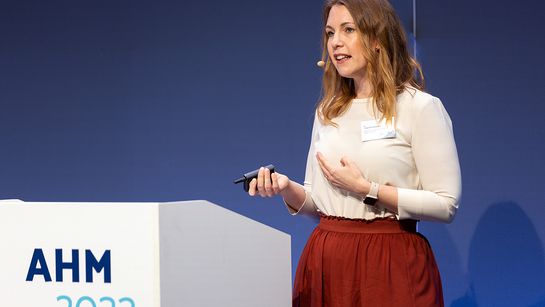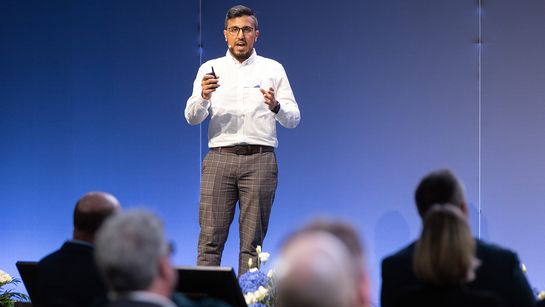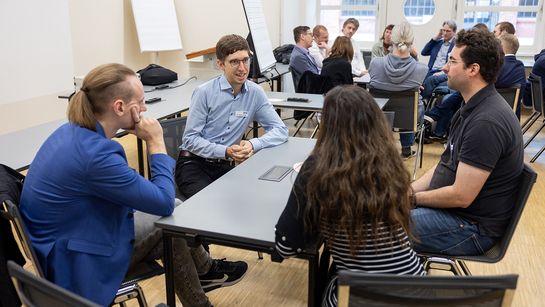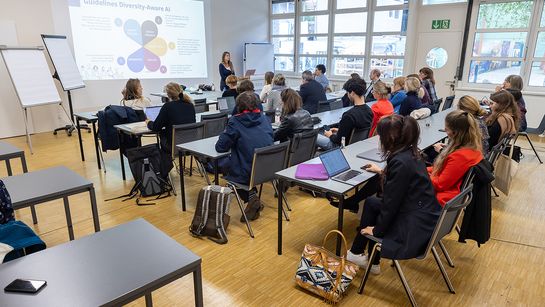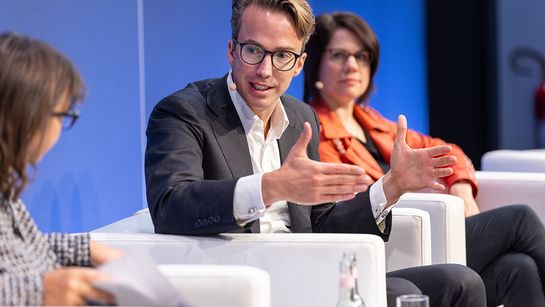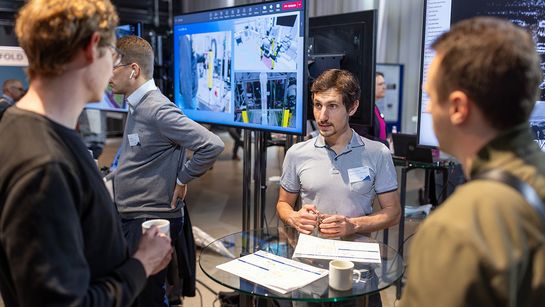On October 9 and 10, 2023, the Berlin Institute for the Foundations of Learning and Data (BIFOLD) at TU Berlin invited scientists from the university AI competence centers (BIFOLD, ScaDS.AI Dresden/Leipzig, Lamarr Institute, Tübingen AI Center, and MCML) and DFKI to Berlin to present and discuss current results of their research at the EUREF campus.
As part of the Federal Government's AI strategy, the five university-based AI competence centers have been receiving permanent funding from the Federal Government and the respective host states since July 1, 2022. The university centers and DFKI form a national network and are the foundation of the German AI ecosystem. As part of the sustained funding, three new professorships have already been appointed at the centers, 17 additional professorships are currently in the appointment process, and more than 15 junior research groups have been or will be filled.
DFKI employees served as chairs in two networking sessions: Dr. Marlon Nuske from the research department Smart Data and Knowledge Services demonstrated the potential of artificial intelligence for the analysis of Earth observation data. Dr. Kinga Schumacher, head of the Diversity & Gender Equality working group, discussed AI biases, equal opportunities, and participation in the company with the participants.
With keynote speeches, panel discussions, and a keynote address, the second day of the network meeting was dedicated to the social and economic perspectives of artificial intelligence. After a keynote speech by Mario Brandenburg, Dr. Philipp Schlenkhoff, co-founder of the DFKI spin-off AITI GmbH, discussed the impact of AI on the transfer from research to application with other panelists.
In a live system demonstration, Dr. Sönke Knoch from the DFKI research department Cognitive Assistants, together with project partner EngRo Tec, showed a concrete example of the transfer of AI into production: a standardized, machine-based procedure ensures that the safety of workers remains guaranteed even in modular, changeable production.

